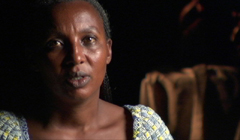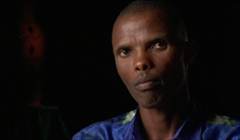Methodology
How do we record?

The testimony is a guided oral history of each survivor’s life, from childhood until the present. These accounts even reach back into time when individuals share stories from their parents and grandparents, proverbs, and even songs, all of which help to contextualize the genocide in Rwanda’s broader history.
While the Voices of Rwanda methodology has evolved over the past four years to an open-ended process with no time limit, our conviction that we exist as an organization to listen and to serve the individuals who share their testimonies has always remained constant.

Every testimony that Voices of Rwanda facilitates is conducted with the utmost care including the visual aesthetic, an essential element in the recording process. Extra time is invested to ensure that each testimony is beautifully photographed, resulting in a document both respectful of the individual and capable of conveying his or her life stories without visual distraction.